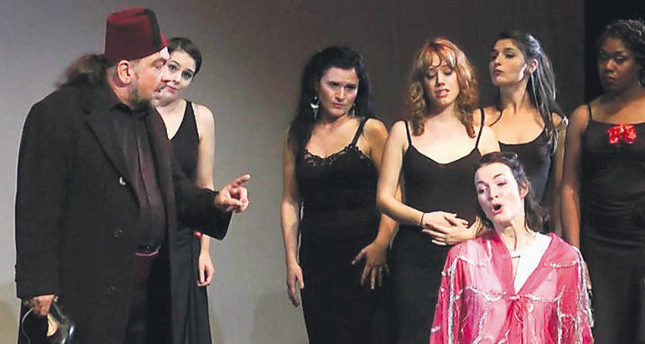PARIS — The 180th anniversary of the birth of Ottoman-Armenian composer Dikran Tchouhadjian will be marked in March. The author, an actor, musician, producer and director, is director of the Dikran Tchouhadjian International Institute in Parish. Tchouhadjian was the first composer of operas in the Ottoman Empire, who has been relegated to the forgotten pile.
“Leblebiji Hor Hor Agha” (aka “Gariné”) is perhaps the most widely known and loved opera-buffa among of Dikran Tchouhadjian’s works. Written in Constantinople in 1875, it has been produced innumerable times since its creation within and beyond the former Ottoman Empire. It was first produced by Tchouhadjian’s own musical theatre company (1874-6) then by actor managers such as Serovpe Benklian (1878-1888) and Arshag Benlian (1910-1923) and many other Armenian, Turkish, Greek, German or other companies in different languages. The latest performances were presented in France and the UK in French and English produced in their integrity by this writer during the years 2010 and 2015. Most recently, the Baronian State Theatre in Yerevan has staged its own ‘adaptation’ of the opera-buffa (2016) which in my opinion would not have met with Tchouhadjian’s approval had he been alive.
And yet, the amazing and sad part of the story is that the original 1875 scores as written by the composer (conductor score and complete orchestra material, including full original librettos) seem to have completely disappeared from the face of the earth.
Initially Leblebiji Hor Hor Agha’s complete score belonged to a rich Armenian, Elazar Melikian, who had bought the rights from Tchouhadjian himself and kept it in his possession in Constantinople. Melikian used to receive royalties for every performance. The last we heard of these scores are in memoires and articles by contemporaries informing us how Serovpe Benklian’s operetta company lost money during their second tour in Egypt in 1888 and was forced to pawn the scores in order to have enough money to travel back home with all his company members.
Fortunately, Benklian had secretly (and illegally) copied Melikian’s scores before 1888. Right after that period, during the terrible years of Sultan Abdul Hamid the Second’s reign, many works were forbidden in Constantinople, including Leblebiji. Instead, Benklian produced it in Smyrna, not disclosing the opera’s title; once in 1892, once in 1894 and one last production in Egypt before dying there 1900.
The evidence indicates that these last performances must have been based on Benklian’s “stolen” copies. Melikian was forced to keep silent, scared of Hamid’s law. This illegal action towards Melikian’s rights, were a risk that Benklian wouldn’t have taken had he recuperated the scores from Egypt.









